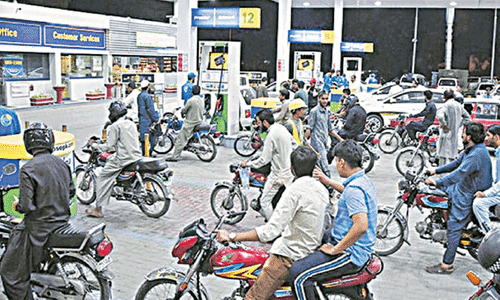LONDON: Rich nations need to do much more to overcome global poverty, Oxfam said in a report aimed at influencing Britain's turn at the helm of the Group of Eight leading industrialized nations.
In a report, "Paying the Price", the development charity said foreign aid budgets now are half what they were in 1960, while poor countries face debt repayments of 100 million dollars (74.3 million euros) a day.
"As rich countries get richer, they're giving less and less. This is a scandal that must stop," said Oxfam director Barbara Stocking. "The world's poorest children are paying for rich countries' policies on aid and debt with their lives," she said.
In Oxfam's view, the new year - when Britain will chair the G8 and, in the second half of the year, hold the European Union presidency - "offers the chance of an historic breakthrough".
"Unless world leaders act now, the year will end in shameful failure." Oxfam - which gets a chunk of its funding from governments and other public institutions like the United Nations - said that in 1970, G8 countries agreed to spend just 0.7 per cent of their incomes on foreign aid.
Thirty-four years on, however, "none of the G8 members have reached this target and many have not even set a timetable," it said in a press release summarizing the content of "Paying the Price".
Without a sea change in policy, it said, "45 million more children will die needlessly by 2015 (and) 97 million more children will be out of school". "For many rich countries, aid is tied to national interest, which Oxfam estimates undermines the effectiveness of aid by 30 per cent," the charity added.
"For example, 20 per cent of the European Union's aid arrives at least a year late and 70 per cent of American aid is spent on US goods and services," it said. At 0.14 per cent of national income, US spending on foreign aid in 2003 was one-tenth of what it spent on Iraq, Oxfam said.
"The United States won't reach the aid target needed to halve world poverty until 2040. Germany won't reach the target until 2087 while Japan is decreasing its aid commitments," it said.
"Everyday we see how aid and debt relief is getting children into school and paying for HIV treatment," it said. "Yet the amounts are tiny." "This year Zambia will spend twice as much on repaying its debts than it will on educating its children. For rich countries, this is not about charity, It is about justice." -AFP











































Dear visitor, the comments section is undergoing an overhaul and will return soon.